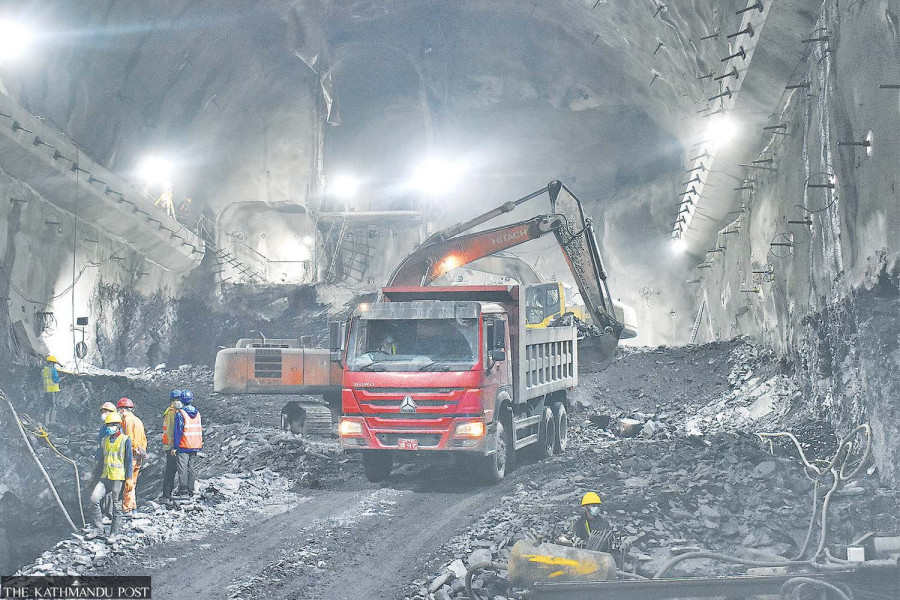Money
FDI pledges go up, but not as high as desired
Nepal spent millions of rupees to organise the much-hyped investment summit in April but failed to lure enough foreign investors.
Post Report
Nepal spent millions of rupees to organise the much-hyped Nepal Investment Summit in April, which was envisaged to boost foreign direct investment (FDI). The result, however, appears to be dismal.
According to the Department of Industry statistics, in the first 11 months of the current fiscal year, Nepal received investment pledges of Rs44.41 billion. Despite the poor performance, it’s a 62.65 percent growth compared to the pledges made in the same period last fiscal year.
Government officials say that at least 30 percent of this commitment could be realised.
The highest FDI pledges that Nepal received were of Rs67.45 billion in 2014-15 when the country was hit by twin devastating earthquakes.
The FDI pledges then dropped to Rs15.25 billion and Rs15.20 billion in 2015-16 and 2016-17, respectively.
The commitments eventually jumped to Rs55.76 billion in 2017-18, when Nepal hosted the first investment summit.
In the second investment summit in 2019-20, the country received investment pledges of Rs37.80 billion.
Nepal received investment pledges of Rs54.15 billion in the fiscal year 2021-22 of the post-Covid period.
The commitment dropped to Rs30.69 billion in the last fiscal year, which industry insiders say resulted from the fluid political situation that resulted in unstable policies.
The department officials say that the commitment may reach Rs50 billion by the finish of the current fiscal year on July 15.
Shankar Singh Dhami, director of the Foreign Investment and Technology Transfer Section of the Industry Department, said FDI pledges have increased from last fiscal year, mainly due to the investment summit.
The department approved investment commitments totalling Rs9.13 billion at the summit held on April 28–29.
In the first 11 months of the current fiscal year, commitments have come for 359 projects, which may generate employment for 10,120 people.
The investment board, a government entity that deals with large investments and fast-track projects, was optimistic about drawing a more significant number of investors this time, learning from the limited success of the previous two summits in attracting investments.
However, critics at that time said the government was laying out a metaphorical red carpet for investors even though little was done to make the country’s politics stable or to improve its investment climate while corruption scams unfolded one after another.
Nepal’s economic activity has slowed, and the outlook remains overshadowed by political crises and geopolitical tensions. The private sector has indicated that most businesses, particularly manufacturing, have declined.
More than 1,700 investors from 55 countries took part in the two-day summit. A total of 150 projects—both government and private—were showcased on the occasion.
But the result was disappointing, according to private sector officials.
The government amended several laws to attract FDI.
According to Dhami, they have received an FDI commitment of Rs11 billion in the last two months after streamlining the process.
An automatic route launched during the third Nepal Investment Summit held on April 28–29 allows foreign investors to invest in sectors without prior approval from other government authorities.
Investors in sectors such as energy, agriculture and forestry, infrastructure, communication and information technology, service, and manufacturing, can apply through the automated route.
An investor has proposed building a commercial complex and leasing it out. Dhami said there are a few investment commitments to set up a large-scale industry.
“As around Rs7 billion of the pledge has already been realised, we expect that around 20–30 percent of the investment pledge will be realised by the end of the current fiscal year.”
According to Nepal Rastra Bank, the central bank, the actual FDI remained at Rs6.98 billion in the first ten months of the current fiscal year up to mid-May, compared to Rs4.36 billion in the same period last fiscal.
In the first 11 months, investment commitments have mainly come for small-scale industries.
The department received investment commitments of Rs33.14 billion for 336 small-scale projects, Rs6.66 billion for four large-scale projects, and Rs4.47 billion for 14 medium-scale ones.
In the last fiscal year, the government lowered the minimum threshold for FDI to Rs20 million, from Rs50 million, to lure more foreign investors, including into small and medium-sized enterprises.
The highest FDI commitment has come in the service sector, amounting to Rs26.58 billion for 116 projects. Rs10.12 billion has been pledged for 172 tourism projects, Rs3.36 billion for five infrastructure projects, and Rs3.33 billion for 40 manufacturing projects.
In the review period, the industry department recommended business visas for 2,008 investors, their 341 representatives, and 865 dependants.




 11.12°C Kathmandu
11.12°C Kathmandu












